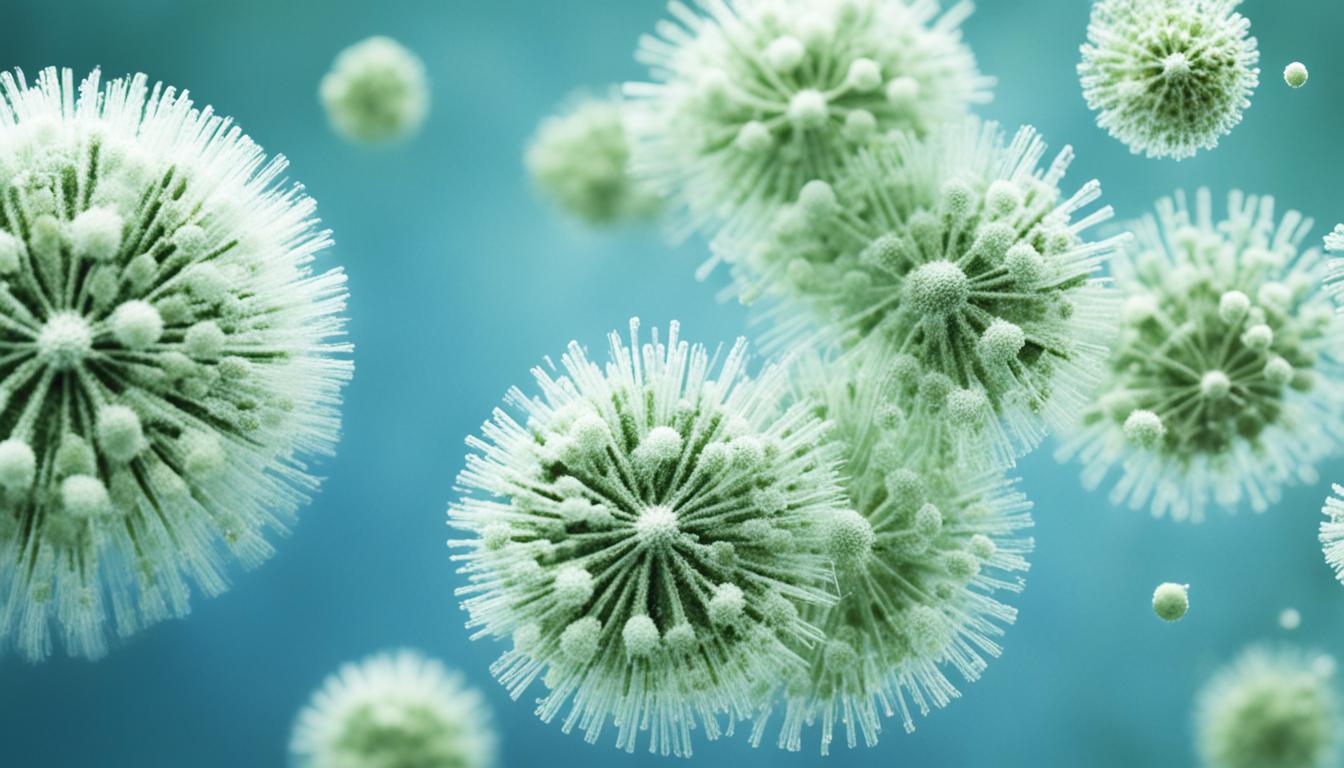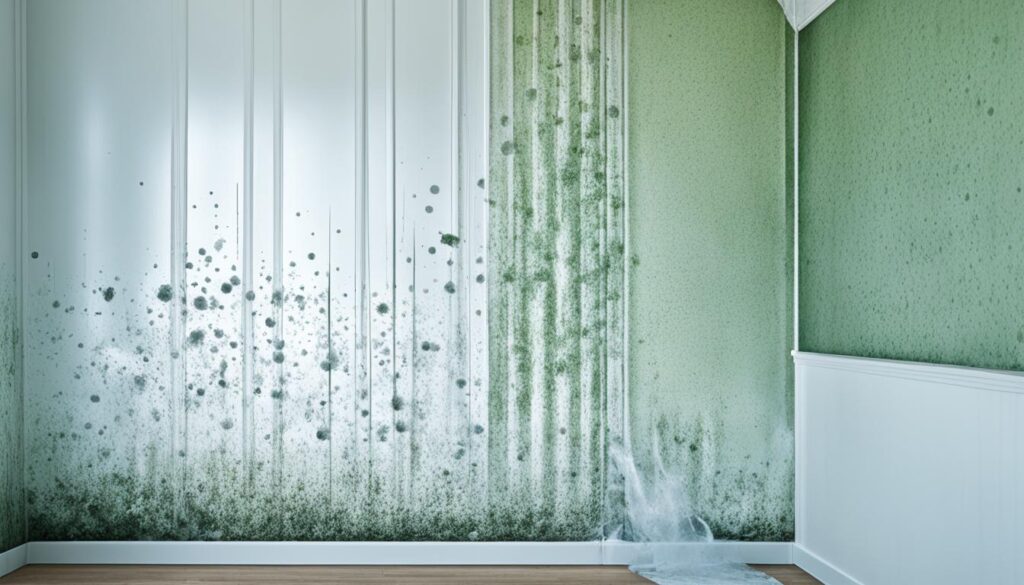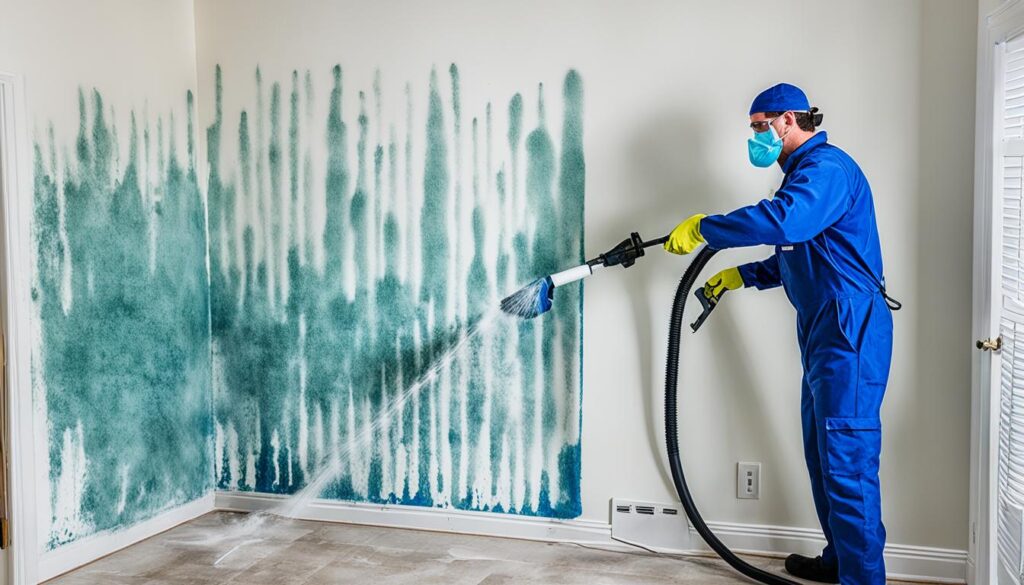
Mould Spore Transmission: Can they Spread to Other Areas?
When it comes to dealing with mould infestations, one of the major concerns is the potential spread of mould spores from the affected area to other parts of a space. Understanding the process of mould spore transmission is crucial for implementing effective prevention strategies and ensuring the safety and well-being of occupants.
Mould spores are microscopic particles that are produced by moulds as a means of reproduction. These spores are lightweight and can easily become airborne, allowing them to travel over long distances. If not properly contained, they can spread to other areas within a building, potentially leading to the growth of new mould colonies.
But can mould spores really spread from an affected area to other parts of a space? The answer is yes. Mould spores can be carried through the air, attached to clothing, shoes, or even pets. They can also be transported through HVAC systems, ventilation ducts, and openings in walls or ceilings.
To prevent the spread of mould spores, it is essential to take proactive measures. This includes implementing effective containment strategies, such as sealing off the affected area and using air purifiers or filtration systems to capture and remove spores from the air. Regular cleaning and maintenance practices can also help to minimize the risk of spore dispersal.
Key Takeaways:
- Mould spores can spread from an affected area to other parts of a space, potentially leading to the growth of new mould colonies.
- These spores are lightweight and can become airborne, allowing them to travel through the air, on clothing, shoes, or pets.
- Preventing the spread of mould spores requires implementing effective containment strategies, regular cleaning, and maintenance practices.
- Air purifiers or filtration systems can help capture and remove spores from the air.
- Seeking professional help, such as the services provided by Fix Mold Miami, can ensure proper mould assessments and remediation to stop the spreading of mould spores.
How Do Mould Spores Travel?
Mould spores have the remarkable ability to travel from an affected area to other parts of a space. Understanding their modes of transportation is crucial for preventing the spread of mould spores and controlling their dispersal. By implementing effective strategies, you can minimize the risk of mould contamination in your environment.
There are several ways in which mould spores can travel:
- Airborne Transmission: Mould spores can be carried through the air, especially in spaces with poor ventilation. They can float freely or attach to dust particles, allowing them to be transported to different areas within a building.
- Physical Contact: Mould spores can also spread through direct contact. When individuals or objects come into contact with mould-contaminated surfaces, they can inadvertently carry the spores to other locations. This mode of transmission is particularly common in high-traffic areas or shared spaces.
- Through HVAC Systems: Mold spores can enter HVAC (Heating, Ventilation, and Air Conditioning) systems if these systems are not properly maintained. Once inside, the spores can be dispersed to various rooms through the airflow, facilitating their spread.
To prevent the spread of mould spores and minimize their dispersal, it is essential to implement the following strategies:
- Proper Ventilation: Adequate ventilation plays a crucial role in preventing the buildup and spread of mould spores. Ensure that all areas of your space have proper airflow to minimize the chance of moisture accumulation and create an inhospitable environment for mould growth.
- Maintain Clean Surfaces: Regular cleaning of all surfaces, especially those prone to moisture or food debris, can help prevent the colonization of mould spores. This includes wiping down countertops, regularly vacuuming carpets, and promptly addressing any moisture issues.
- Inspect and Maintain HVAC Systems: Regularly inspect and maintain HVAC systems to ensure they are functioning properly. This includes cleaning or replacing filters, checking for leaks, and scheduling professional inspections to identify and address any potential issues.
- Use Mould-Resistant Materials: When renovating or constructing a space, consider using mould-resistant materials. These materials are designed to deter mould growth, minimizing the potential for spore transmission and contamination.
By prioritizing the prevention and control of mould spore spread, you can create a healthier environment for yourself and those around you.
“Effective prevention strategies are crucial in controlling the spread of mould spores and minimizing their impact on indoor air quality.” – Dr. Emma Evans, Indoor Air Quality Expert
| Methods of Mould Spore Transmission | Prevention Strategies |
|---|---|
| Airborne Transmission | Ensure proper ventilation |
| Physical Contact | Maintain clean surfaces |
| Through HVAC Systems | Inspect and maintain HVAC systems |
Strategies for Preventing Mould Spore Spread
Mould spores can easily spread from an affected area to other parts of a space, leading to potential health hazards and structural damage. To prevent and control the spread of mould spores, it is important to implement effective strategies that focus on containment and thorough cleaning practices.
Containment Measures
One of the primary strategies for preventing mould spore spread is implementing containment measures. This involves isolating and sealing off the affected area to prevent the spores from dispersing to other parts of the space. Here are some containment measures that can be undertaken:
- Plastic sheeting: Use plastic sheeting to seal off the affected area and create a physical barrier that prevents mould spores from escaping.
- Air pressure differentials: Create negative air pressure within the affected area using specialized equipment like HEPA filters and exhaust fans. This helps in containing the mould spores and prevents their spread.
- Mould-resistant barriers: Install mould-resistant barriers, such as moisture-resistant drywall or paint, in areas prone to mould growth. These barriers act as an additional layer of protection against mould spore spread.
Effective Cleaning Practices
In addition to containment measures, implementing effective cleaning practices is crucial for preventing and controlling the spread of mould spores. Here are some recommended cleaning practices:
- Use HEPA vacuums: Regularly vacuum the affected area and surrounding areas using HEPA (High-Efficiency Particulate Air) vacuums. HEPA filters are capable of capturing microscopic mould spores, preventing their release into the air.
- Wet cleaning: When cleaning surfaces, dampen a cloth or mop with a mild detergent or an antimicrobial cleaner. Wet cleaning helps to capture and remove mould spores more effectively.
- Avoid dry brushing: Avoid dry brushing or using compressed air to clean mould-affected surfaces, as it can cause spores to become airborne and spread to other areas.
By implementing these strategies for preventing and controlling mould spore spread, you can effectively minimize the risk of mould-related health issues and structural damage in your space.

| Prevention Strategies | Advantages |
|---|---|
| Containment measures |
|
| Effective cleaning practices |
|
Importance of Professional Mould Assessments and Remediation
When it comes to dealing with mould infestations, seeking professional help is paramount. Fix Mold Miami is a trusted name in the industry, providing top-notch mould assessments and remediation services. By enlisting their expertise, you can effectively stop the spreading of mould spores and ensure a safe and healthy environment.
Mould spores travel through various means, making it crucial to address the issue with precision and expertise. Fix Mold Miami’s team of experienced professionals understands the intricacies of mould spore transmission and can effectively identify the root cause of the problem.
Their comprehensive mould assessments involve thorough inspections to identify the extent of the mould growth, determine the source of moisture, and assess any potential health risks. This attention to detail allows them to develop targeted strategies to stop the mould spores from spreading further.
Remediation Process
Fix Mold Miami employs state-of-the-art techniques and equipment to remove and remediate mould effectively. Their remediation process includes:
- Containment: The experts create containment barriers to prevent further mould spore dispersal during the removal process.
- Safe Removal: They safely remove mould-affected materials, ensuring the elimination of all visible mould growth and spores.
- Cleaning and Disinfection: The affected area is thoroughly cleaned and disinfected to eliminate any remaining mould spores.
- Drying and Restoration: Fix Mold Miami ensures proper drying of the area and can also assist with restoration services to bring your property back to its pre-mould condition.
By entrusting your mould assessment and remediation needs to Fix Mold Miami, you can rest assured that the spreading of mould spores will be effectively stopped, and your space will be restored to a safe and healthy environment.

Conclusion
In conclusion, we have explored the transmission of mould spores and the potential for their spread from an affected area to other parts of a space. Mould spores can travel through various means, including air currents, clothing, and pets. This highlights the importance of taking proactive measures to prevent mould spore spread and control their dispersal.
By implementing effective prevention strategies, such as proper ventilation, moisture control, and regular cleaning, it is possible to stop mould spores from spreading to other areas. Containing mould spores within the affected area is crucial to prevent further contamination and potential health issues.
If you are dealing with mould spore issues and require professional assistance, we recommend reaching out to Fix Mold Miami at 305-465-6653. Their team of experts specializes in mould assessments and remediation, providing comprehensive solutions to stop the spreading of mould spores and ensure a safe and healthy environment.




